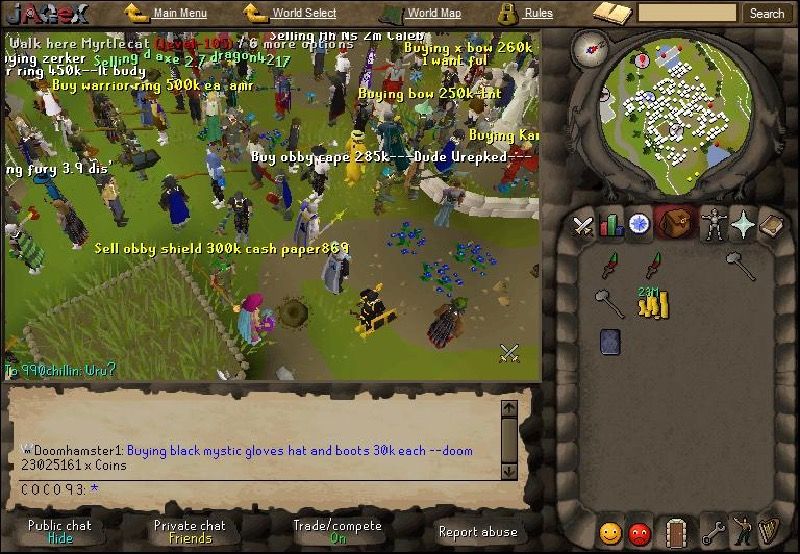Video Game Education
The Benefits of Tinkering at Scale.

My friend Mark recently published “Dump the MBA - Gaming as Management Training".
It argues the lessons which can be drawn from video games back to the real world.
I wrote a response and I'm copying it here.
I played RuneScape and ran Australia’s best Capture the Flag Call of Duty team all throughout high school. I’d go to school 8-3, play sport 3-5 and then play computer games until midnight.
RuneScape taught me economics and how to use a keyboard. In game, there was a field you could stand and buy items from other players around the world. That’s where I started my first (virtual) business. The idea was simple, trade other players, buy items low, sell for more. You’d often have to switch which item you were flipping to account for the supply and demand of the game. And because your way of selling was through a keyboard, typing “Selling Obby Capes $250k Each – Trade 0 Crazy 0" over and over again, my fourteen-year-old fingers got fast at typing.
Running a Call of Duty team taught me organisational skills, leadership skills, communication skills, strategy skills. I was never the best player (my friend Nick was a freak, as in, freakishly good) but I was the best communicator by far. I’d get in touch with other teams around Australia and we’d organise matches with each other (playing other countries would be a disadvantage due to ping). I remember getting home from school on a Monday and spending hours planning out a strategy to run for the weekend’s upcoming match. Nick hold the middle, Matt and Will go down the right, Chris and I will hold the back and cut off the left flank. I’d run through it with the team on Tuesdays and then we’d spend the rest of the week practising before the actual match.
The benefit of video games was: a fast feedback loop. Or another term I’ve just thought of: tinkering at scale.
If the items I was selling were overpriced, I’d have no buyers.
If the plans I’d made for the Call of Duty match didn’t work we’d get slayed in public games (games with random opponents usually of lower skill than actual teams) let alone in competition.
Of course, not all of the skills translate directly to the real world. But the benefit of RuneScape and Call of Duty was that each digital player had an actual human on the other side. Which meant many of the social dynamics did transfer directly (as you’ve discussed).
My ears rang with people telling me video games were a waste of time whilst I was playing them. And while now I’d agree with them on some level (you don’t need video games but the real world needs you), they’ve been some of my greatest teachers.
I’d also argue a benefit for working any kind of role with a high flow of people, especially any kind of customer service.
Working at Apple Retail taught me how to view things from a customer’s point of view. Seeing a new customer every 10-minutes provided a grand opportunity to learn how to befriend (people like to buy things from their friends) and help someone solve their issues in a short period of time. Driving Uber gave similar opportunities, a new person every 10-minutes. You can read all the How to Win Friends and Influence People books you want but until you try what you’ve read 1000x, you’ll never know.
Now I work in tech, I’ve noticed a big disconnect between what an engineering team might think a person might want versus what they actually need.
I’m a big fan of bringing the value of what video games provide not only to software engineering teams but education as well.
How?
I don’t quite know yet.
But something I do know: the best teachers are entertainers, education comes as a bonus. Curriculum designers could take some cues from game designers.
Like Mark, if more thoughts on this topic come up, I'll write about them.
